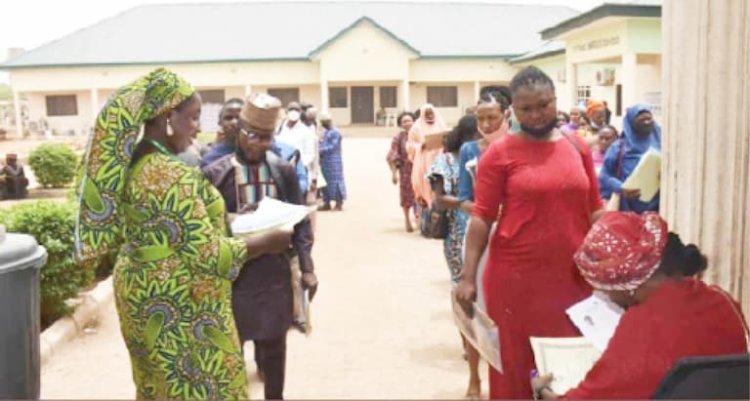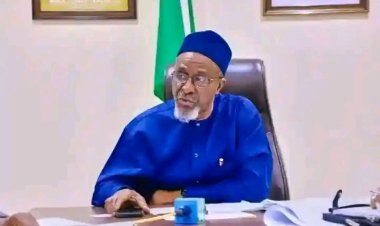Kaduna to implement 65 years retirement age for teachers as FG increased teachers’ retirement age from 60 to 65
A new federal law increased teachers’ retirement age from 60 to 65 years and duration of service from 35 to 40 years.

A new federal law increased teachers’ retirement age from 60 to 65 years and duration of service from 35 to 40 years.
The Kaduna State government on Monday said it was finalising the processes for the implementation of the 65 years retirement age or 40 years of service for teachers.
Commissioner for Education Halima Lawal, disclosed this in Kaduna while distributing 2,358 digital school attendance devices to 2,358 public primary schools across the state.
President Muhammadu Buhari had in April signed the harmonised retirement age for teachers bill into law.
The law has increased the retirement age of teachers in the country from 60 to 65 years and extended the duration of service for teachers from 35 to 40 years.
Ms Lawal, represented by the ministry’s permanent secretary, Haliru Soba, said the processes for the domestication of the law had already passed through the state’s policy council.
She added that the document would be sent to the State Executive Council for final approval.
The commissioner called on the teachers to reciprocate the gesture by rededicating themselves and increasing their commitment to reducing the disturbing learning poverty index in the state.
Ms Lawal said the current learning poverty index in the country stood at 70 to 80 per cent, with that of Kaduna State estimated at around 50 to 60 per cent.
“This means that we can have a 10-year-old child that cannot read a simple passage or do simple addition or subtraction. This is quite alarming.
“We are supposed to take care of this at the foundation level, and if we fail, then we will be recording increased levels of poverty in learning in the state and the country.

“This is why we are making all efforts to make our education system functional by looking at the child, the teacher, infrastructure, funding, and the education systems,” she said.
She, however, noted that nothing would be achieved without the maximum support of the teachers and other education stakeholders.
The commissioner called on education managers at all levels to support government efforts to reposition the sector for quality teaching to improve learning in public schools.





